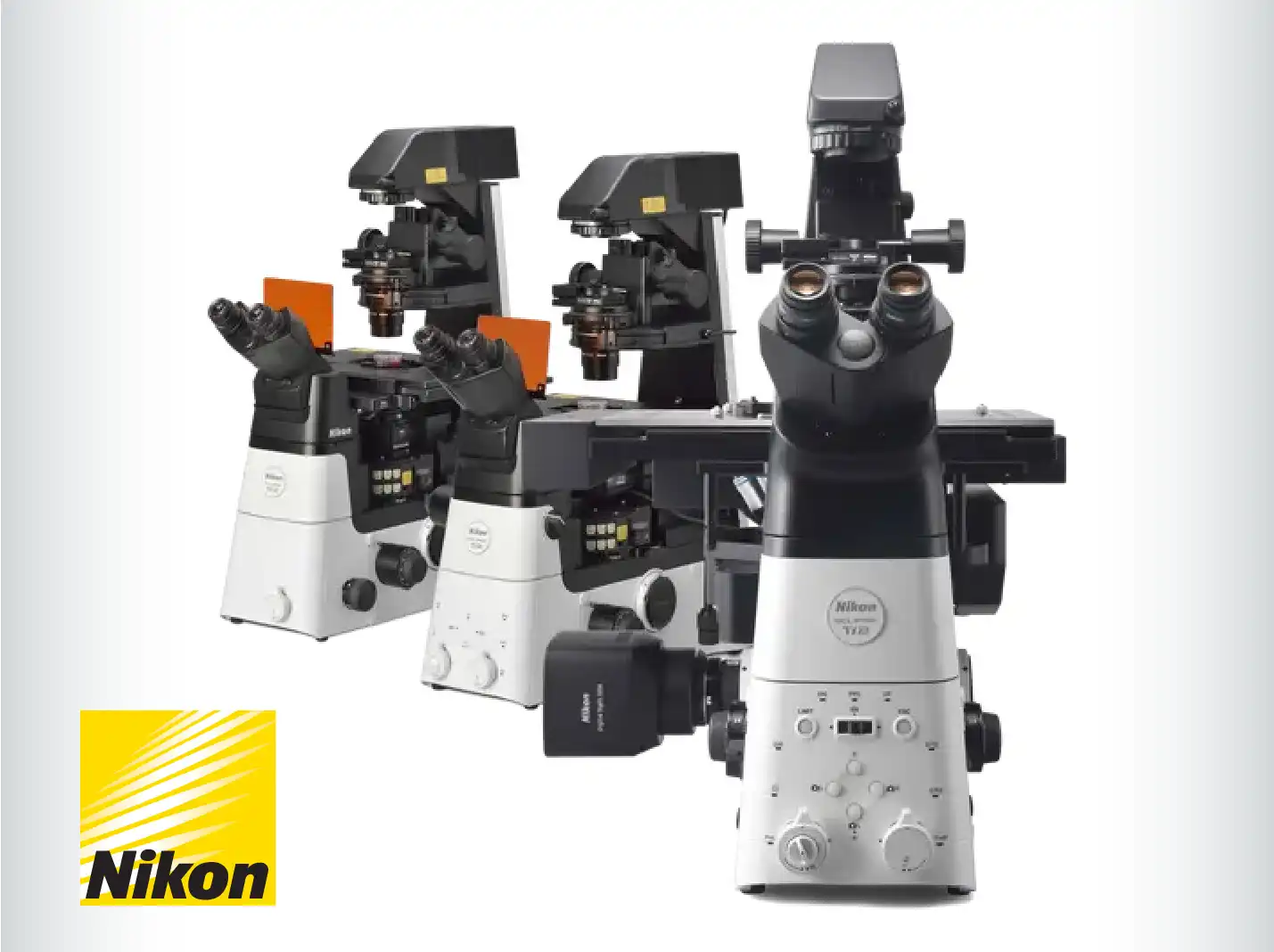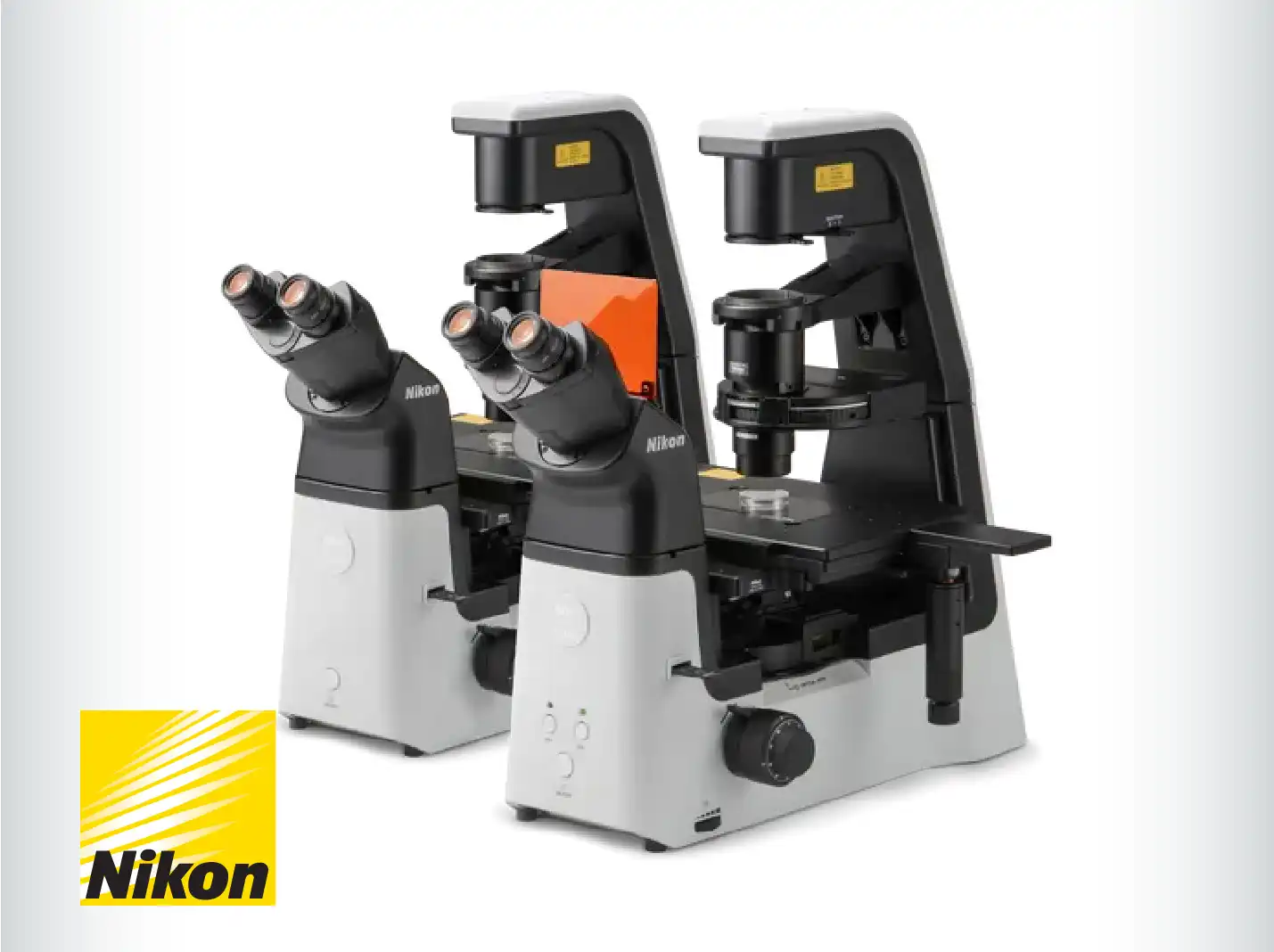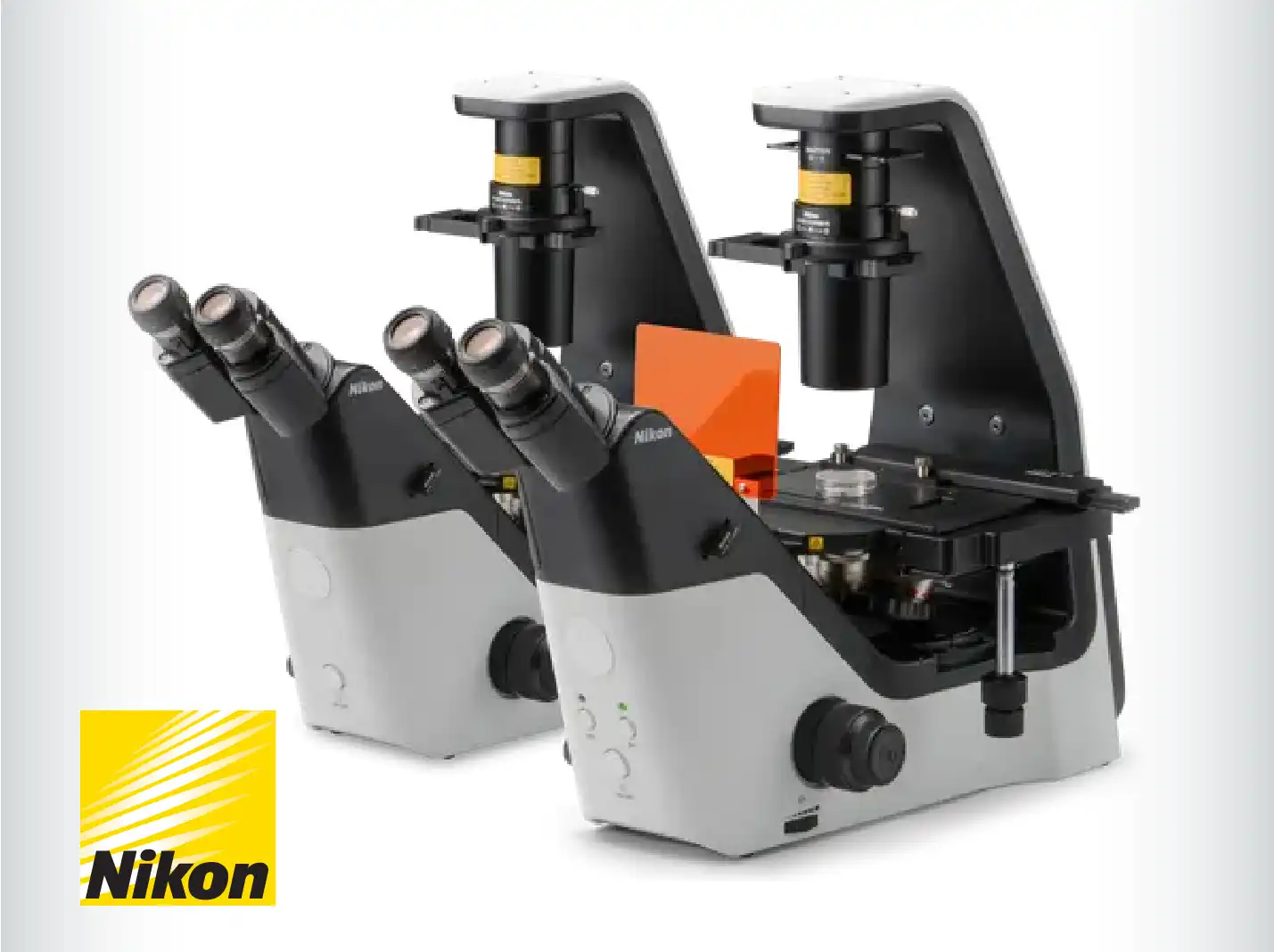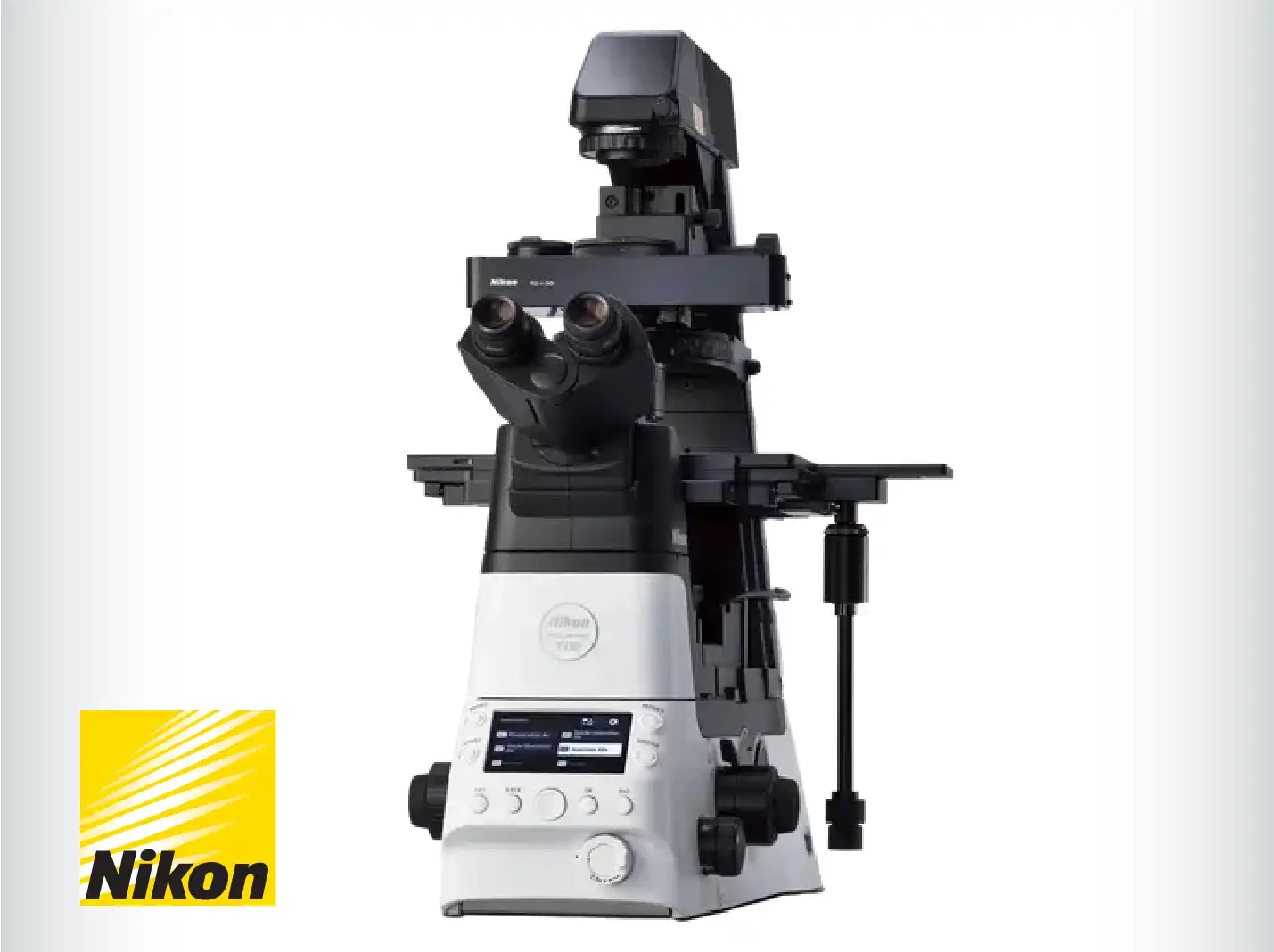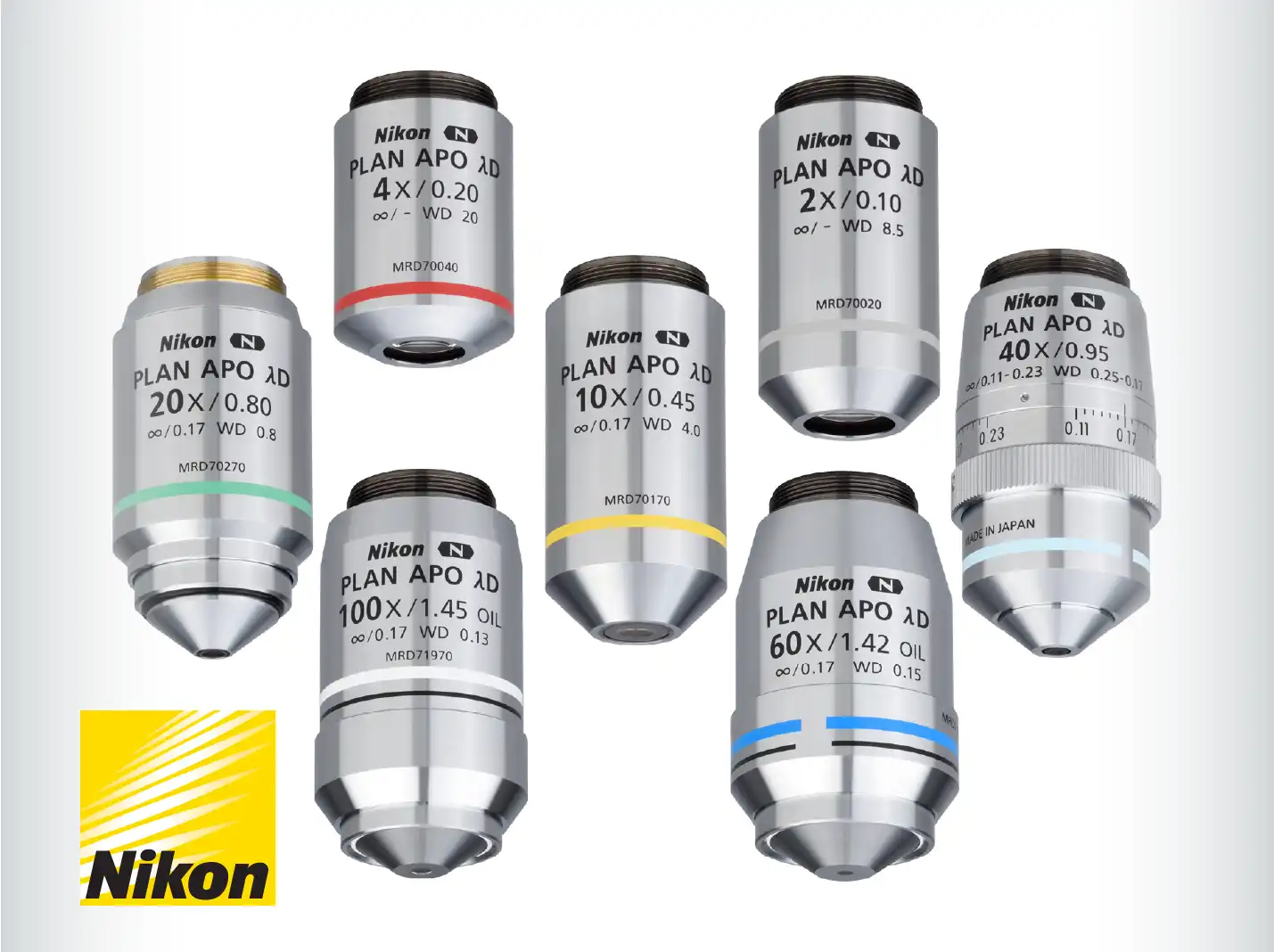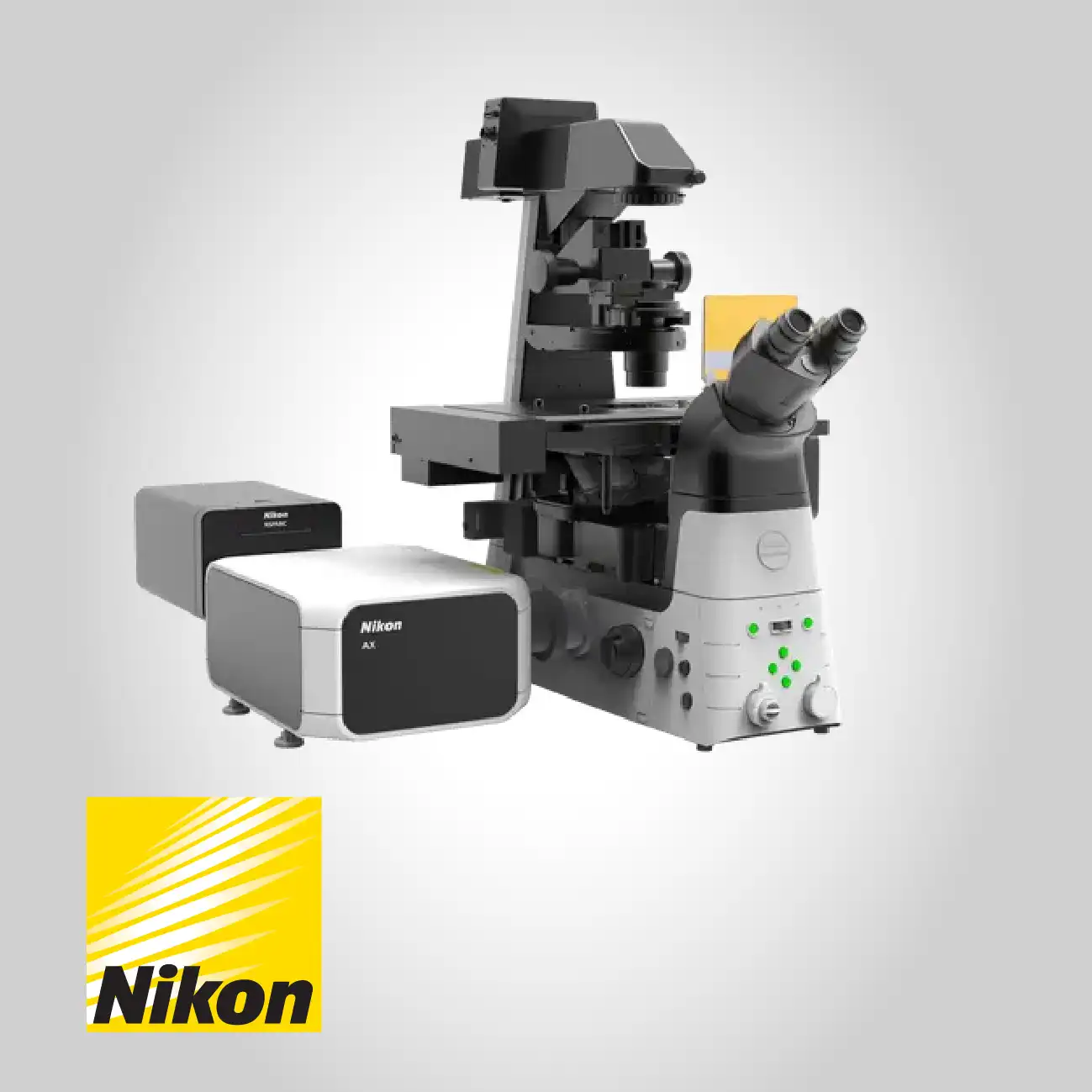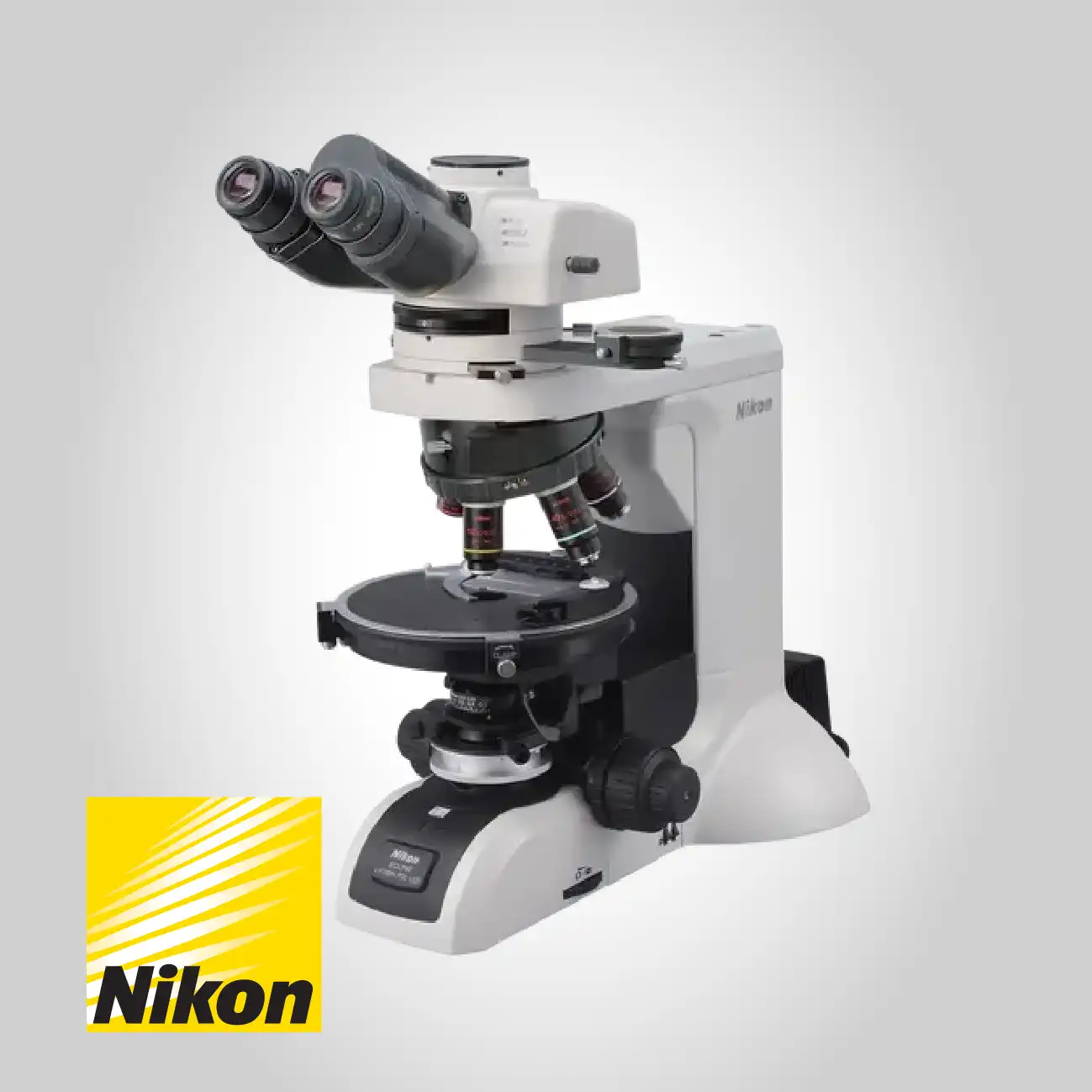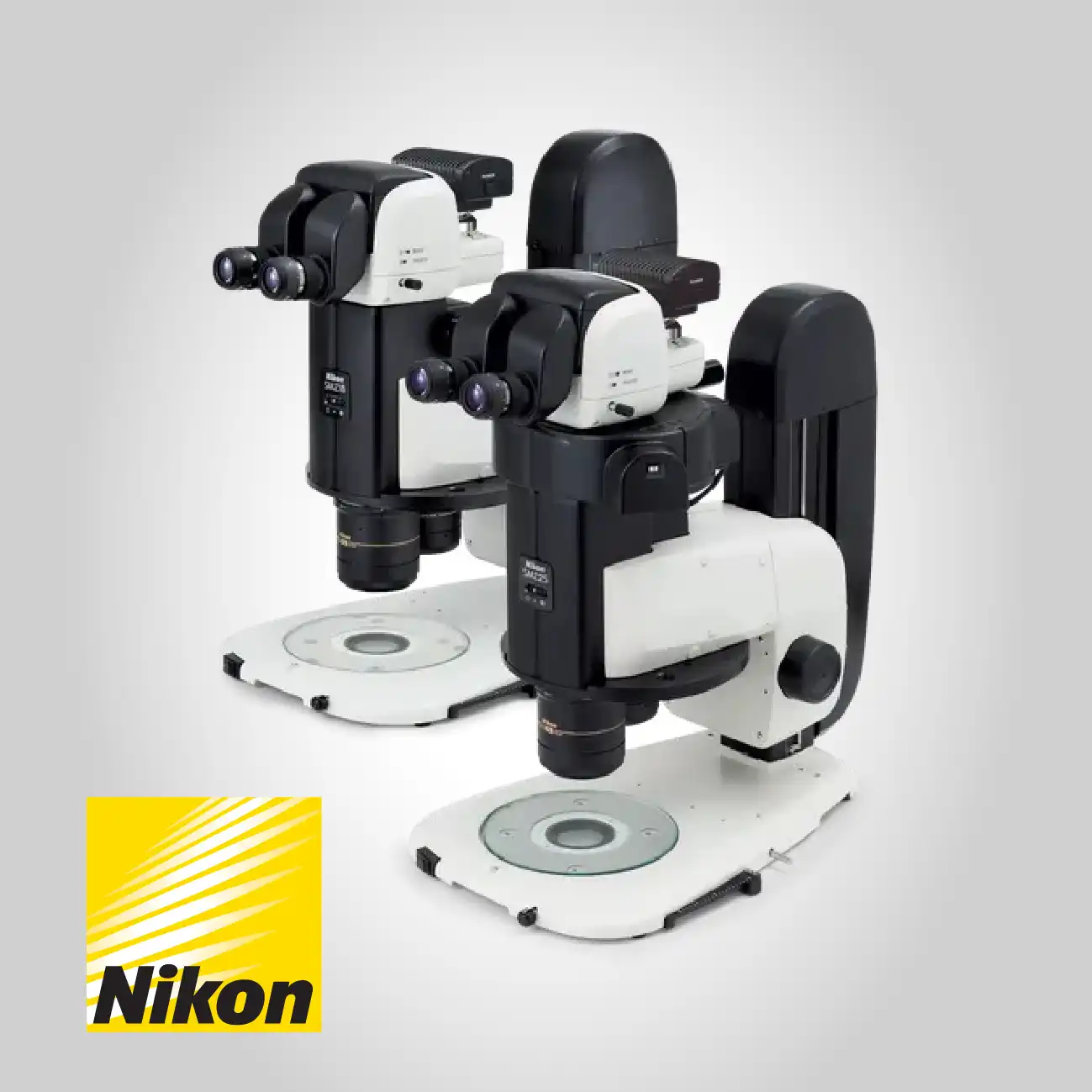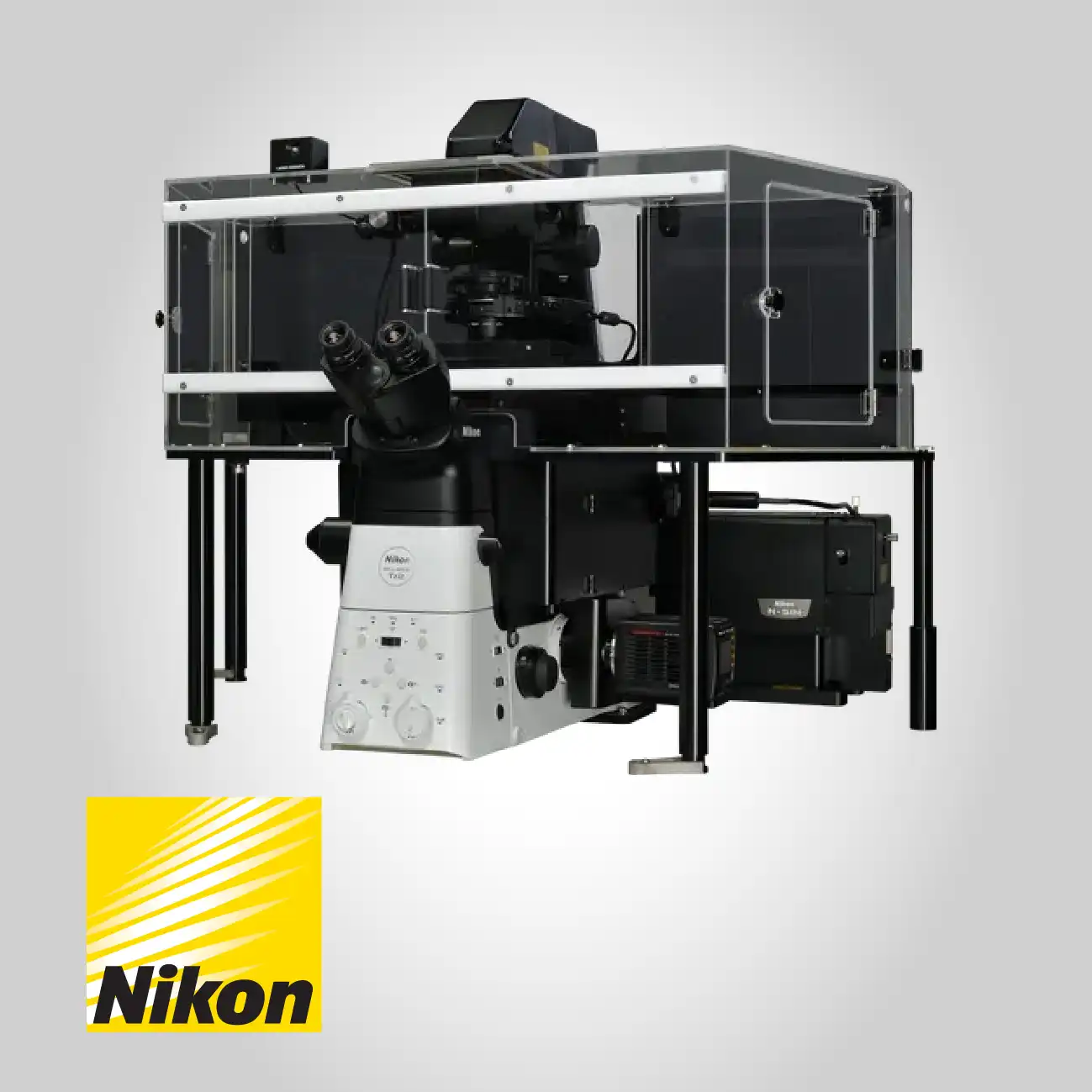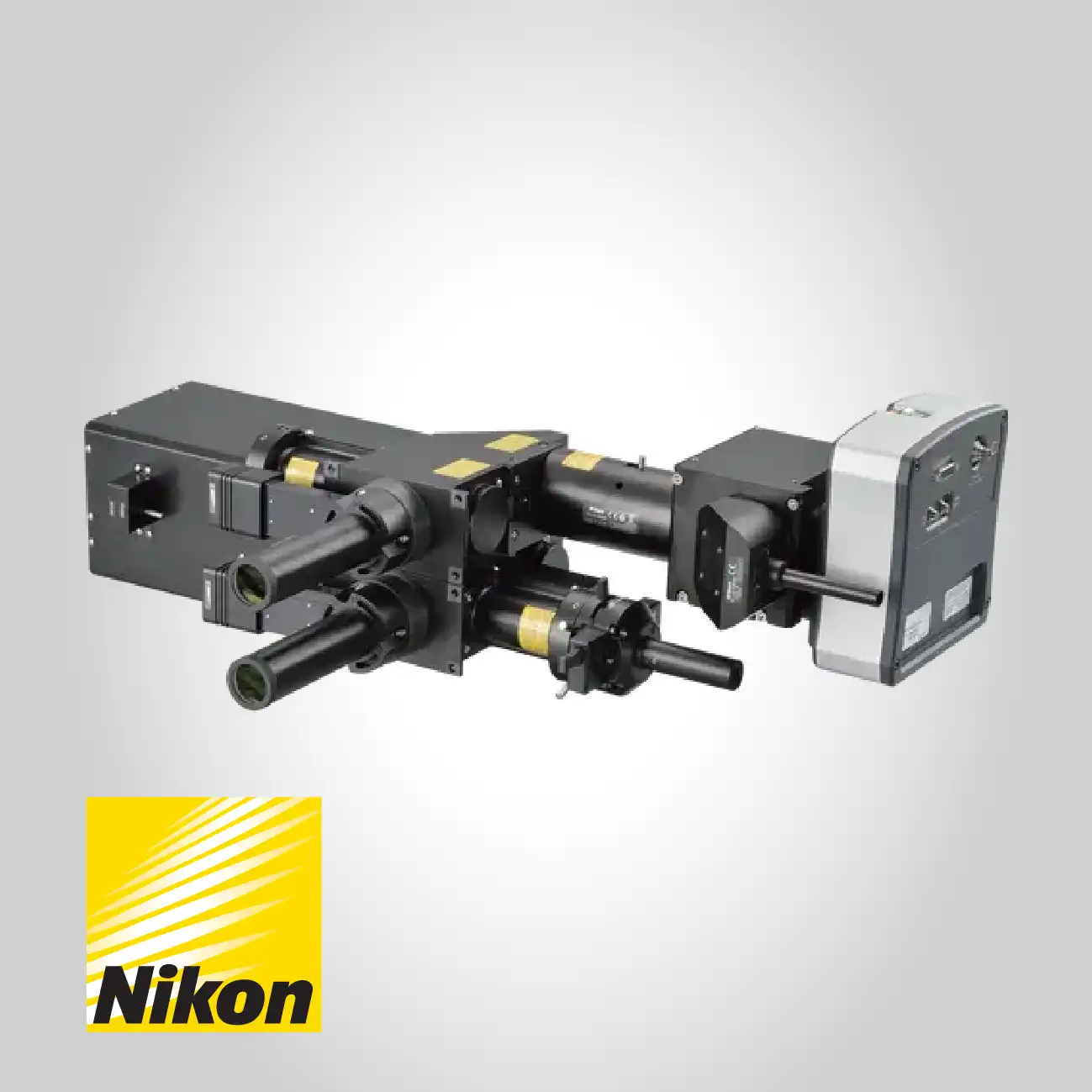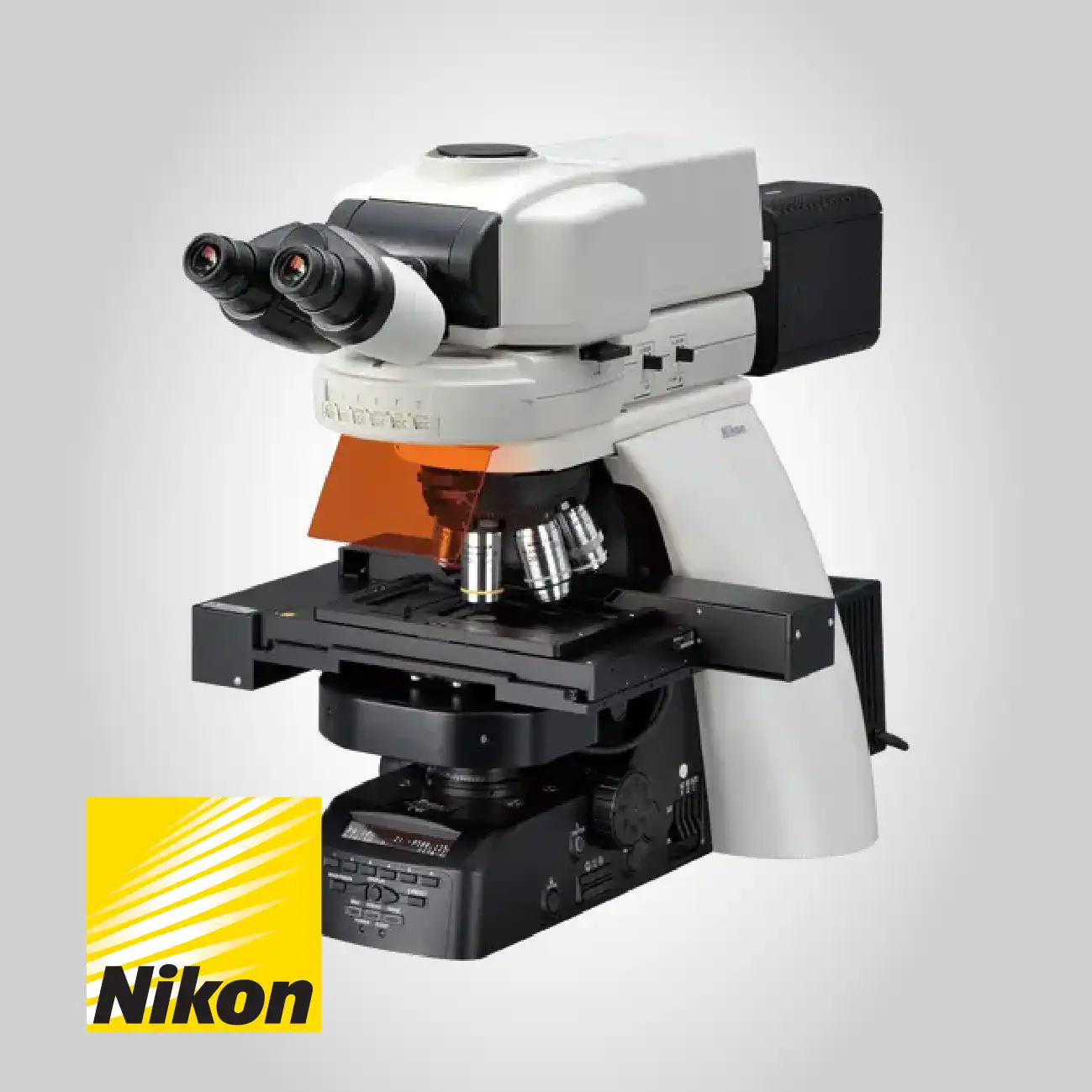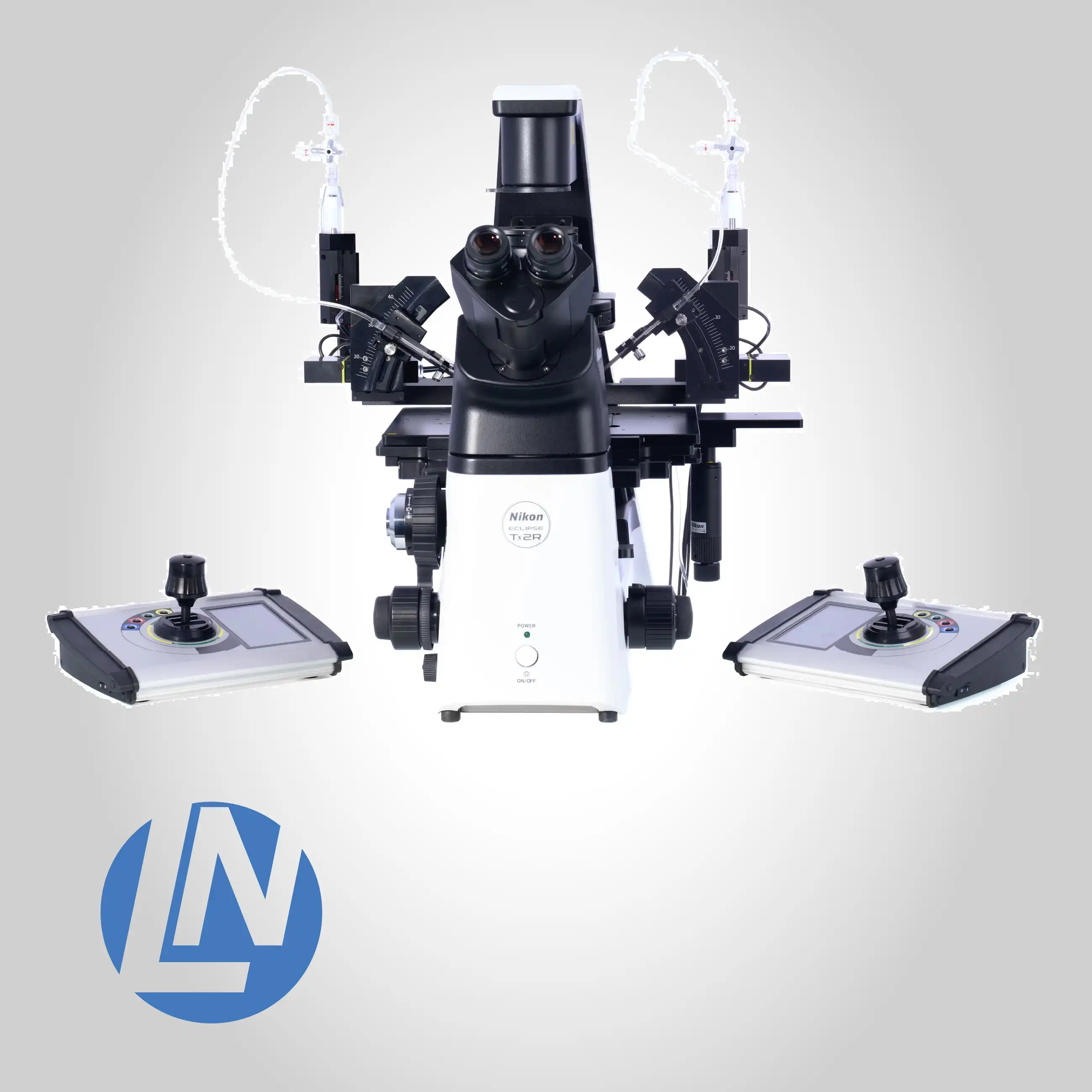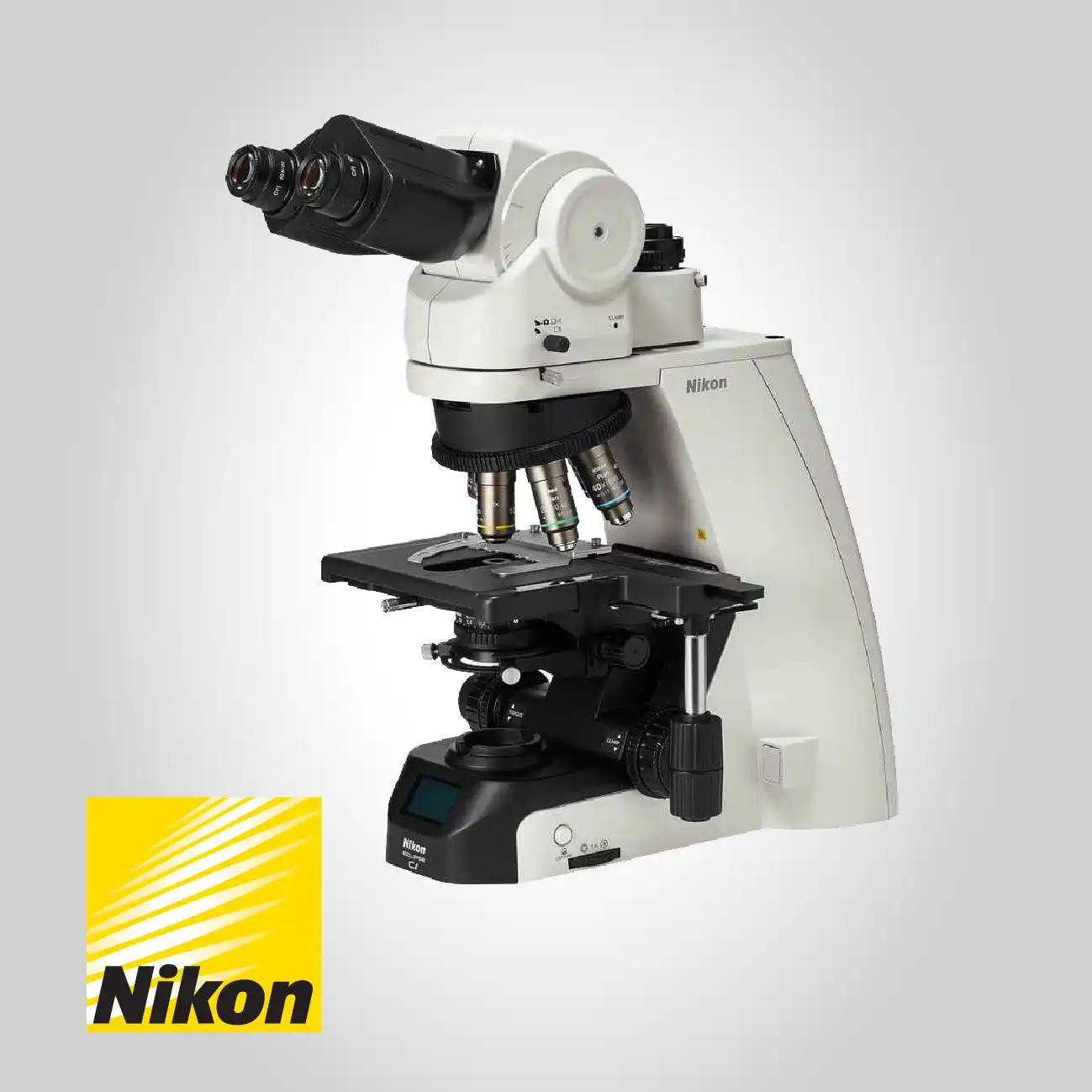
Inverted Microscopes
Modular Precision for Culture & Manipulation
Nikon Inverted Microscopes
Nikon inverted microscopes are designed to address one of the biggest IVF lab challenges: balancing optical precision with workflow flexibility. Their advanced optical system ensures clear visualization of live cells and embryos, even through plastic culture dishes, reducing misinterpretation risks. The modular design means clinics can start with a basic configuration and later add advanced imaging modalities such as fluorescence or phase contrast, avoiding costly equipment replacement. This adaptability directly reduces capital expense and provides long-term scalability for growing labs.
Embryologists often struggle with limited fields of view, which restricts context when monitoring embryo development. The ECLIPSE Ti2 offers a groundbreaking 25 mm field of view, the widest in its class, allowing users to capture more information in a single glance. This expanded view significantly improves embryo tracking, reduces the need for multiple repositionings, and maximizes the utility of large CMOS camera sensors. For IVF labs handling dozens of culture dishes simultaneously, this translates into faster decision-making and reduced operator fatigue.
One of the most common pain points in IVF imaging is maintaining focus over extended time-lapse observations. Even slight drift can compromise developmental stage documentation. Nikon’s Ti2 inverted microscopes use a drift-free platform with unmatched stability, ensuring that embryos remain sharply focused for hours or days. This stability reduces data loss, eliminates the need for repeated imaging, and guarantees more reliable embryo selection outcomes. For labs, this means improved reproducibility and fewer wasted cycles due to imaging errors.
High-throughput workflows often overwhelm embryologists with manual adjustments. The Ti2 solves this by integrating intelligent workflow guidance and hardware triggering that automate acquisition sequences. Users receive real-time sensor feedback, reducing operator error during complex imaging tasks. This automation not only speeds up processes but also ensures consistent results regardless of operator experience. IVF teams benefit from reduced training times, standardized imaging quality, and increased efficiency under high workloads.
Micromanipulation procedures such as ICSI demand ultra-stable imaging platforms where vibration or focus loss can cause failed fertilization attempts. Nikon’s Ti2-U IVF model provides a rock-solid base designed specifically for IVF micromanipulation. With its intermediate 1.5× magnification changer, embryologists can optimize viewing without swapping objectives, reducing disruption during delicate injections. This capability directly improves success rates in ICSI while minimizing operator stress and embryo handling time.
Traditional microscopes often require multiple systems for different contrast techniques, leading to clutter and inefficiency. The Ti2 addresses this with Nikon Advanced Modulation Contrast (NAMC), enabling visualization of transparent, unstained specimens through plasticware. This reduces dependency on multiple devices, cuts training complexity, and ensures high-contrast, artifact-free imaging. IVF labs gain a single streamlined solution that minimizes equipment investment and simplifies operator training.
Fluorescence imaging for embryo viability studies demands bright and uniform illumination. Nikon’s large-format epi-fluorescence with fly-eye optics ensures even excitation across the entire field, even in fast, high-content workflows. This guarantees that subtle fluorescent signals from embryos are captured consistently, supporting accurate viability assessments. IVF clinics benefit from improved diagnostic confidence and reduced false negatives in embryo screening.
Data management is another pain point for labs where imaging, storage, and reporting must be efficient and traceable. When paired with NIS-Elements software, Ti2 integrates acquisition, device control, and analysis in one environment. This reduces time spent switching between platforms, enables comprehensive annotation, and ensures traceable documentation. IVF labs thus achieve regulatory compliance, faster reporting, and enhanced transparency for both clinicians and patients.
Read more about Nikon inverted miscroscopes here





